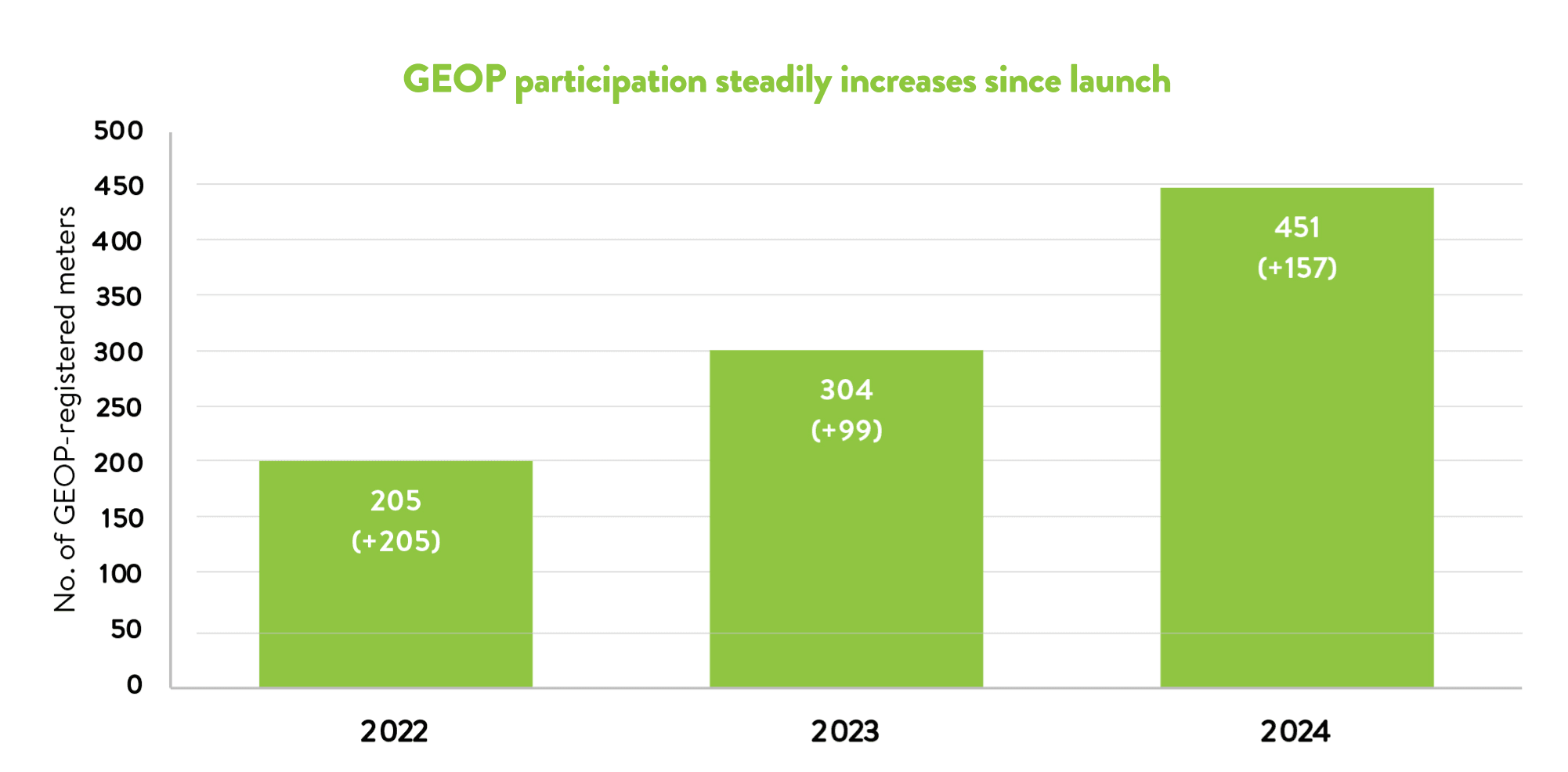PH businesses must adopt renewable energy to boost profits
The Green Energy Option Program empowers enterprises to reduce costs and enhance sustainability goals
![[FINAL] GEOP Report Banner.jpg](https://mb.com.ph/uploads/imported_images/FINAL_GEOP_Report_Banner_ceb41fbe37.jpg)
A new study by The Climate Reality Project Philippines has revealed the significant benefits of renewable energy for Philippine businesses.
By enabling companies to switch to 100 percent renewable energy without infrastructure costs, the Green Energy Option Program (GEOP) is reshaping the Philippine energy market, empowering businesses to significantly reduce costs and accelerate their sustainability goals.
The report “Enabling the Renaissance of Renewable Energy in the Philippines: A Preliminary Study on the Socioeconomic Impacts of the Green Energy Option Program” analyzed the experiences of 36 GEOP switcher companies that collectively saved ₱71.7 million, slashed their carbon emissions by an average of 79 percent, and fast-tracked their journey toward net-zero goals.
GEOP brings cheaper power to businesses
The program enables businesses to break free from traditional electricity supply chains. This voluntary program allows consumers with an average monthly peak demand of 100 kW to source their electricity entirely from renewable energy suppliers, rather than being tied to their distribution utilities or electric cooperatives.
Participants in Climate Reality PH’s 2024 survey reported securing electricity rates between ₱4.00 and ₱5.00 per kWh, resulting in average monthly savings of ₱355,000 and a 20 percent reduction in electricity costs.
In a country where imported fossil fuels account for 78 percent of the power generation mix, the report found that GEOP provides an immediate, cost-effective solution to shield businesses from the volatility of global energy markets and the resulting spikes in domestic electricity rates.

Achieving net-zero goals with GEOP
Beyond cost savings, participating business entities in the study have also found themselves accelerating their net-zero journey with GEOP after citing an average of 79 percent carbon emission reduction, amounting to at least 38.9 million kgCO2, immediately after switching.
“The capacity of our private sector to boost the country’s renewable energy transition is indispensable. Scaling up GEOP across industries could drive even greater reductions in the national greenhouse gas emissions,” said Giancarlo Pocholo Enriquez, energy analyst at Climate Reality Philippines.
Expanding GEOP’s reach
GEOP’s success in reducing costs and emissions underscores its vital role in the Philippines’ clean energy transition. However, its implementation faces significant challenges, including limited public awareness, regional disparities, bureaucratic hurdles, and a constrained supply of renewable energy.
As of September 2024, 80 percent of GEOP users are based in Luzon, with limited adoption in Visayas (20 percent) and none in Mindanao.
Expanding GEOP’s reach requires a concerted effort by the Department of Energy (DOE), local government units, energy suppliers, and other stakeholders to conduct targeted campaigns in untapped markets like Visayas and Mindanao; improve renewable energy infrastructure; streamline bureaucratic processes for easier participation; and foster the growth of renewable energy suppliers to meet rising demand.
In 2024, DOE initiated efforts to amend GEOP implementation rules to broaden consumer participation and encourage more renewable energy suppliers to join the program. Proposed changes include allowing end-user aggregation for entities with average peak demand below 100 kW and introducing greater flexibility in replacement power requirements for suppliers.
“Getting more industries to participate in the GEOP market raises the demand for cleaner and more sustainable energy, driving down power prices in the country. It offers a clear and easy choice for companies—one that delivers short-term financial savings and long-term sustainability,” said Ian Soqueño, energy program lead at Climate Reality PH.